第58章
ON GOING OUT
The last few days of your stay in the wilderness you will be consumedly anxious to get out.
It does not matter how much of a savage you are, how good a time you are having, or how long you have been away from civilization.Nor does it mean especially that you are glad to leave the wilds.
Merely does it come about that you drift unconcernedly on the stream of days until you approach the brink of departure: then irresistibly the current hurries you into haste.The last day of your week's vacation; the last three of your month's or your summer's or your year's outing,--these comprise the hours in which by a mighty but invisible transformation your mind forsakes its savagery, epitomizes again the courses of social evolution, regains the poise and cultivation of the world of men.Before that you have been content; yes, and would have gone on being content for as long as you please until the approach of the limit you have set for your wandering.
In effect this transformation from the state of savagery to the state of civilization is very abrupt.
When you leave the towns your clothes and mind are new.Only gradually do they take on the color of their environment; only gradually do the subtle influences of the great forest steal in on your dulled faculties to flow over them in a tide that rises imperceptibly.You glide as gently from the artificial to the natural life as do the forest shadows from night to day.But at the other end the affair is different.
There you awake on the appointed morning in complete resumption of your old attitude of mind.The tide of nature has slipped away from you in the night.
Then you arise and do the most wonderful of your wilderness traveling.On those days you look back fondly, of them you boast afterwards in telling what a rapid and enduring voyager you are.The biggest day's journey I ever undertook was in just such a case.We started at four in the morning through a forest of the early spring-time, where the trees were glorious overhead, but the walking ankle deep.On our backs were thirty-pound burdens.We walked steadily until three in the afternoon, by which time we had covered thirty miles and had arrived at what then represented civilization to us.Of the nine who started, two Indians finished an hour ahead; the half breed, Billy, and I staggered in together, encouraging each other by words concerning the bottle of beer we were going to buy; and the five white men never got in at all until after nine o'clock that night.
Neither thirty miles, nor thirty pounds, nor ankle-deep slush sounds formidable when considered as abstract and separate propositions.
In your first glimpse of the civilized peoples your appearance in your own eyes will undergo the same instantaneous and tremendous revulsion that has already taken place in your mental sphere.Heretofore you have considered yourself as a decently well appointed gentleman of the woods.Ten to one, in contrast to the voluntary or enforced simplicity of the professional woodsman you have looked on your little luxuries of carved leather hat-band, fancy knife sheath, pearl-handled six-shooter, or khaki breeches as giving you slightly the air of a forest exquisite.
But on that depot platform or in presence of that staring group on the steps of the Pullman, you suddenly discover yourself to be nothing less than a disgrace to your bringing up.Nothing could be more evident than the flop of your hat, the faded, dusty appearance of your blue shirt, the beautiful black polish of your khakis, the grime of your knuckles, the three days' beard of your face.If you are a fool, you worry about it.If you are a sensible man, you do not mind;--and you prepare for amusing adventures.
The realization of your external unworthiness, however, brings to your heart the desire for a hot bath in a porcelain tub.You gloat over the thought;and when the dream comes to be a reality, you soak away in as voluptuous a pleasure as ever falls to the lot of man to enjoy.Then you shave, and array yourself minutely and preciously in clean clothes from head to toe, building up a new respectability, and you leave scornfully in a heap your camping garments.They have heretofore seemed clean, but now you would not touch them, no, not even to put them in the soiled-clothes basket, let your feminines rave as they may.And for at least two days you prove an almost childish delight in mere raiment.
But before you can reach this blissful stage you have still to order and enjoy your first civilized dinner.It tastes good, not because your camp dinners have palled on you, but because your transformation demands its proper aliment.Fortunate indeed you are if you step directly to a transcontinental train or into the streets of a modern town.Otherwise the transition through the small-hotel provender is apt to offer too little contrast for the fullest enjoyment.
But aboard the dining-car or in the cafe you will gather to yourself such ill-assorted succulence as thick, juicy beefsteaks, and creamed macaroni, and sweet potatoes, and pie, and red wine, and real cigars and other things.
In their acquisition your appearance will tell against you.We were once watched anxiously by a nervous female head waiter who at last mustered up courage enough to inform me that guests were not allowed to eat without coats.We politely pointed out that we possessed no such garments.After a long consultation with the proprietor she told us it was all right for this time, but that we must not do it again.
At another place I had to identify myself as a responsible person by showing a picture in a magazine bought for the purpose.
The public never will know how to take you.
Most of it treats you as though you were a two-dollar a day laborer; some of the more astute are puzzled.